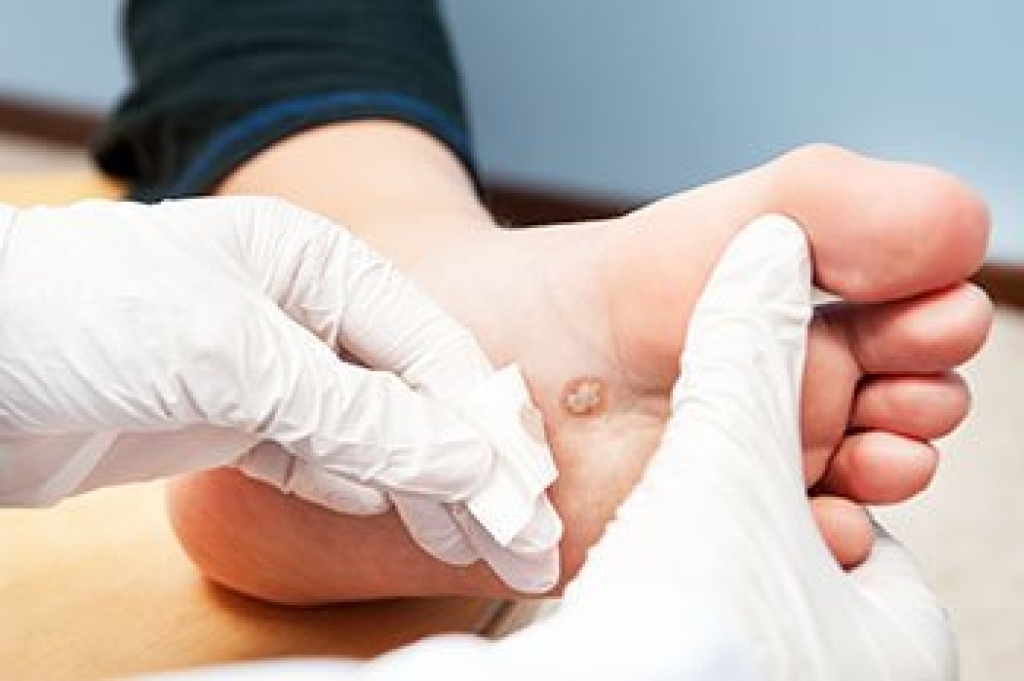
There are several different kinds of warts that an individual may develop on their body. Plantar warts and common warts are among the most familiar. Usually, children and young adults are more susceptible to developing these kinds of warts. Both plantar and common warts occur when an individual is exposed to a certain strain of human papillomavirus, or HPV. This can happen when an individual touches someone else’s wart. What makes these two kinds of warts different is where they are typically located. Common warts can develop on any part of the body, although they are most typically found on the hands and knees. They are small, oval-like, rough patches of skin. On the other hand, plantar warts are found primarily on the bottoms of the feet, also known as the soles. Plantar warts will manipulate the natural lines that are located on the soles of the feet. If you have plantar warts, you might even see clogged blood vessels in the plantar wart that are of a black color. Plantar warts also differ from common warts because there are different potential treatments for each kind of wart. If you suspect that you have plantar warts, you should consider seeing a podiatrist who can help you treat warts.
Plantar warts can be very uncomfortable. If you need your feet checked, contact Dr. Castillo from Bronx Foot Care. Our doctor will assist you with all of your foot and ankle needs.
About Plantar Warts
Plantar warts are the result of HPV, or human papillomavirus, getting into open wounds on the feet. They are mostly found on the heels or balls of the feet.
While plantar warts are generally harmless, those experiencing excessive pain or those suffering from diabetes or a compromised immune system require immediate medical care. Plantar warts are easily diagnosed, usually through scraping off a bit of rough skin or by getting a biopsy.
Symptoms
- Lesions on the bottom of your feet, usually rough and grainy
- Hard or thick callused spots
- Wart seeds, which are small clotted blood vessels that look like little black spots
- Pain, discomfort, or tenderness of your feet when walking or standing
Treatment
- Freezing
- Electric tool removal
- Laser Treatment
- Topical Creams (prescription only)
- Over-the-counter medications
To help prevent developing plantar warts, avoid walking barefoot over abrasive surfaces that can cause cuts or wounds for HPV to get into. Avoiding direct contact with other warts, as well as not picking or rubbing existing warts, can help prevent the further spread of plantar warts. However, if you think you have developed plantar warts, speak to your podiatrist. He or she can diagnose the warts on your feet and recommend the appropriate treatment options.
If you have any questions, please feel free to contact our offices located in Bronx, NY Yonkers, NY . We offer the newest diagnostic and treatment technologies for all your foot care needs.
